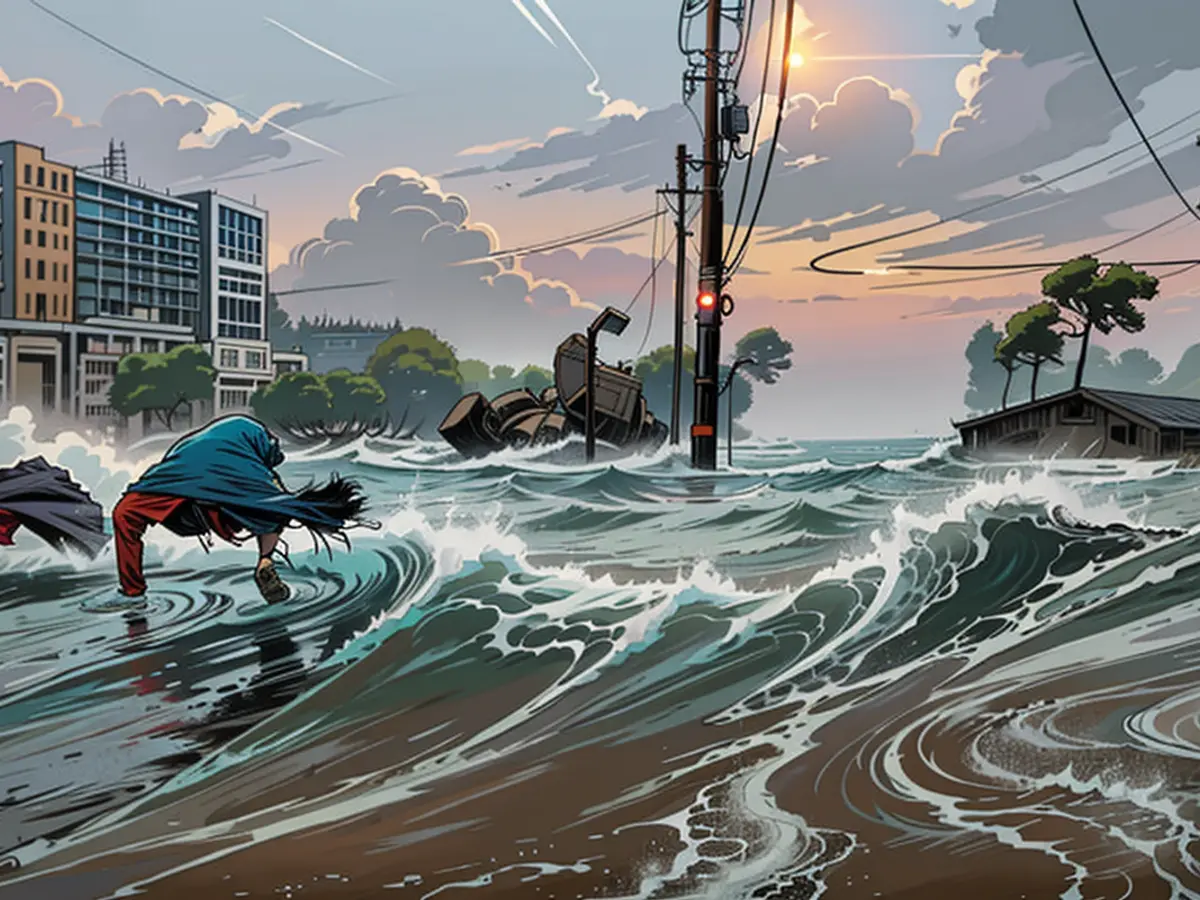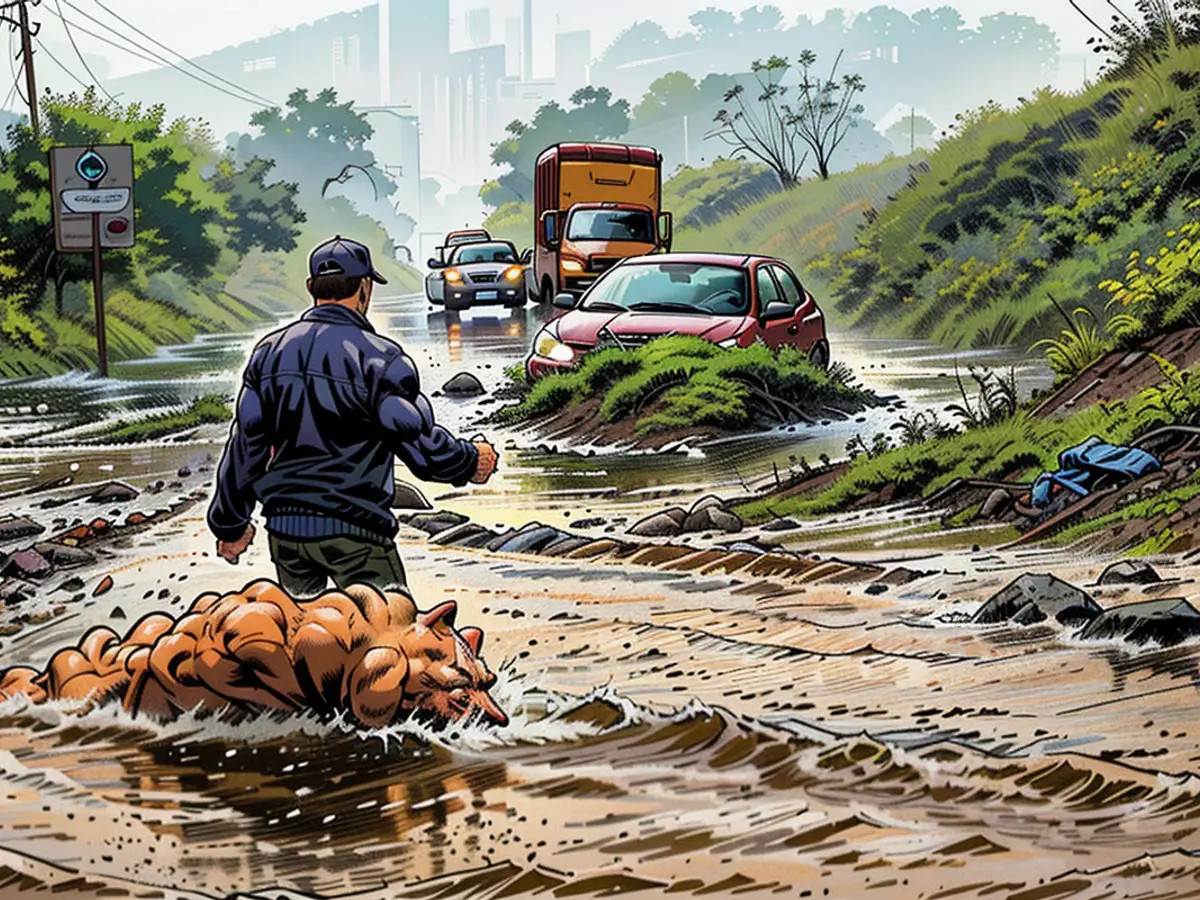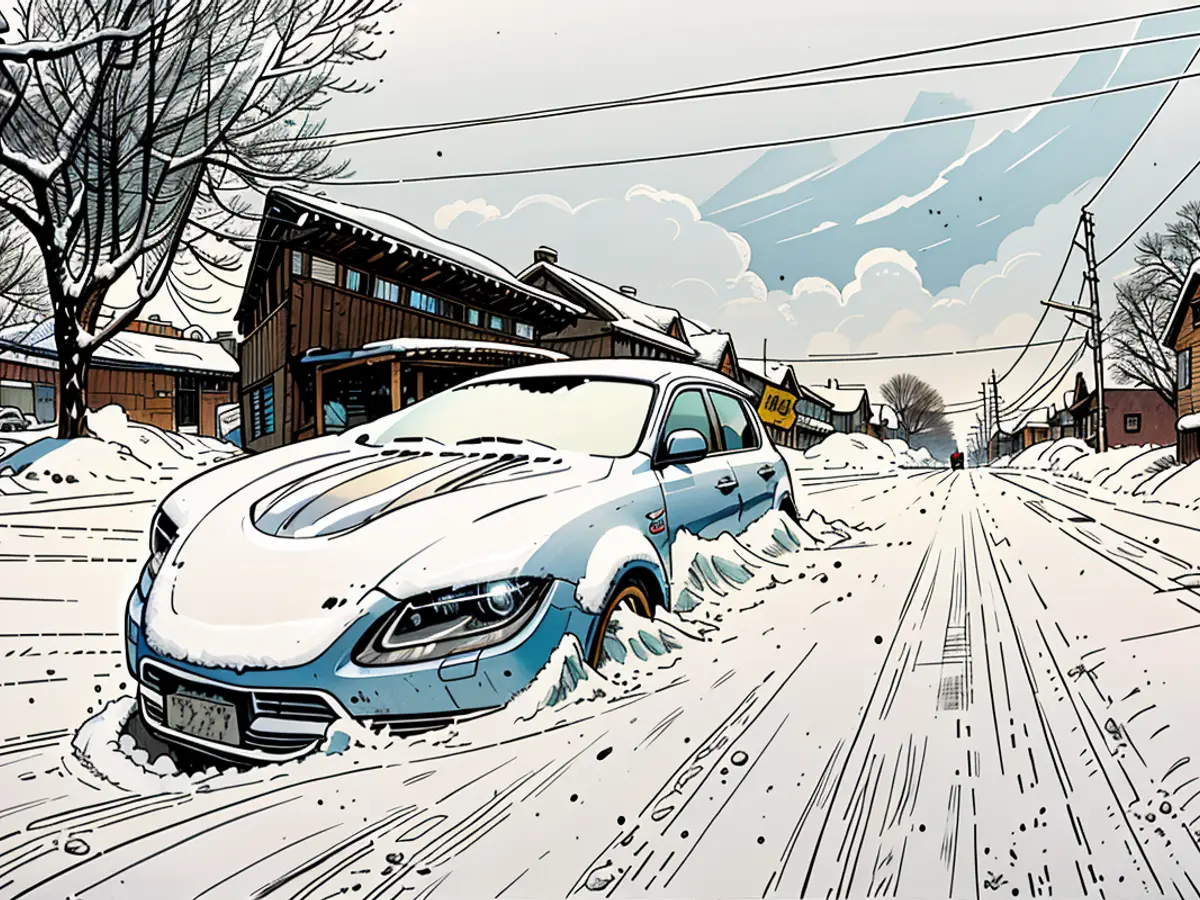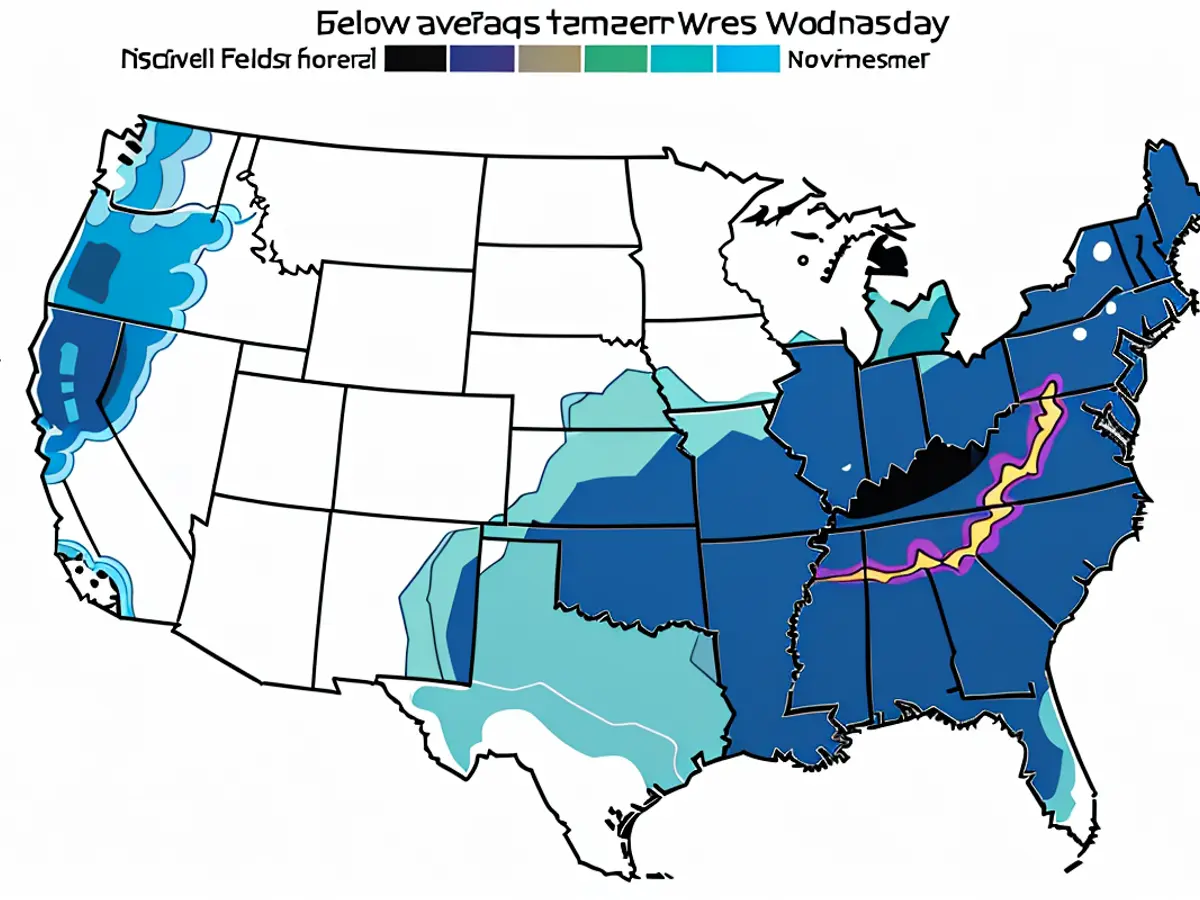Inside a daring rescue at sea during Hurricane Ian
David Littlefield remembers the moment he realized he would survive Hurricane Ian.
The retired commercial pilot and recreational boater was stranded at sea when the category 4 storm devastated the west coast of Florida in late September 2022. Ian underwent a process called “rapid intensification” – where wind speeds increase dramatically in a short period of time due to warming ocean temperatures.
The monster storm was packing sustained winds of over 155 miles per hour, and would become one of the costliest natural disasters in United States history.
Early forecasts predicted Ian would be a direct hit to the Tampa Bay area. That’s where Littlefield and his partner, Rebecca Van Fossen lived, and kept their boat, a 44-foot cabin cruiser named the Elizabeth Pearl. As Ian grew larger and more intense, their marina issued an emergency evacuation order. David was forced to move the boat to safer waters. It didn’t turn out that way.

“They were saying, if you’re in Tampa, you need to watch out.” Littlefield recalled, “You go north, or you go south. I went south ... to Fort Myers.”
As David headed south, the Elizabeth Pearl lost its generator and, with it, his ability to charge his phone. He was cut off from nearly all communication and had no way to know that Hurricane Ian had changed course. Like David, Ian was now also headed to Fort Myers.
Rebecca Van Fossen said the family had no way to reach him: “We’re all on pins and needles. The whole family’s like ‘Have you heard from Dave? ... No, I haven’t heard from Dave, but I’ve called him probably a hundred times.’ It’s not answering.”
The morning Ian hit, David was anchored in the Pine Island Sound, off the coast of Fort Myers. The skies and seas quickly went from calm to dangerous.
“The wind was blowing so hard, and the waves were so high. And all of a sudden, wind and waves, hurricane force, blow the boat over on its starboard side. It rolled at 90 degrees.” Littlefield recalled.
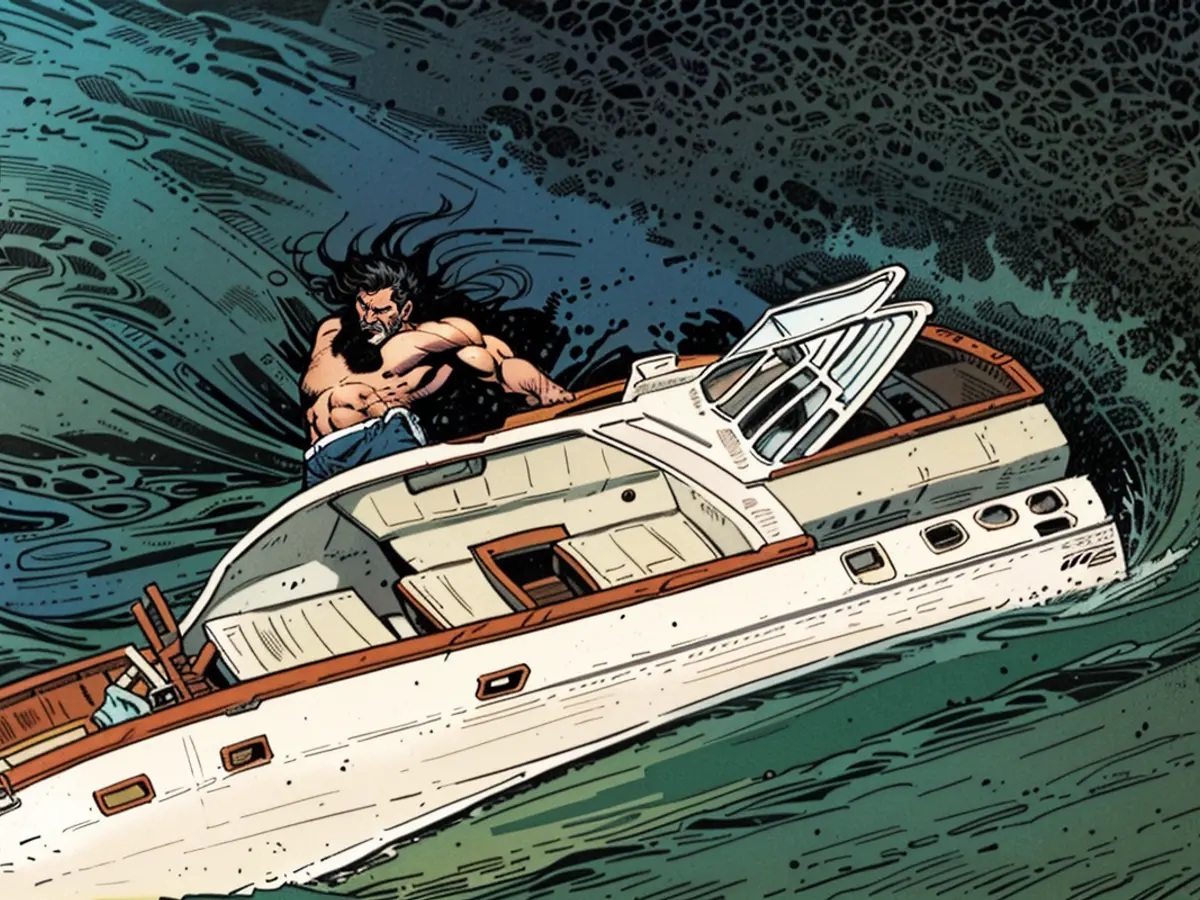
“I look in the engine room and there’s a big hole in the side of the boat. And water starts coming in. Electronics are now submerged, and they short out, and now there is smoke ...”
Trapped in the boat’s cabin, David faced the reality that the only two doors outside were both underwater. He was in trouble.
“How am I going to get out?” Littlefield said.
He made his way to a window and kicked it out. He put on two life jackets – reasoning that “if one life jacket is good, two must be better.” He also grabbed a personal locator device called an EPIRB, an Emergency Position Indicating Radio Beacon. It’s a small electronic device equipped with GPS, that when activated, sends a signal to help search and rescue teams locate people in distress.
“I flip on my EPIRB, and now it’s transmitting.” Littlefield said. “I squeeze out the window and I’m on the side of the boat that’s out of the water. I’m exposed to the full force of the hurricane.”
Clinging to the side, Littlefield and his boat are being battered by the storm.
“A wave would come and slam me in the back and then it would recede, and you’ve got 150 mph winds.” Littlefield said. “And I’m hearing the boat break up behind me, absolutely heartbreaking.”
As a pilot, Littlefield knew rescue missions aren’t normally flown during the height of a hurricane, especially at night. He calculated there would be five hours to dark and 12 hours to light before he had any chance for a rescue. Littlefield worried: “I wonder if I can do this for 17 hours?”
At midnight, a four-person helicopter rescue team from Coast Guard Air Station Clearwater was alerted to a distress signal from a vessel stranded off the coast of Fort Myers.
“Sometimes we don’t fly during the hurricane”, USCG Rescue Swimmer, Jethro Hauser, said. “It’s too dangerous. But people started calling in and we had to go.”
Hauser described the treacherous journey: “You would just start seeing explosions, and it was the electrical transformers blowing up. It was crazy. I’ve never seen anything like it.”
The flight crew went to the last known position of the EPIRB signal and proceeded to search, according to USCG Flight Mechanic Megan Howard, “we knew we were in the right area, we just had to find him.”
Littlefield’s call was their second of what would become a long and harrowing weekend of rescues.
Hauser recalls the moment they spotted the vessel, “Someone up front was like, “I think there’s a boat on its side up ahead.” ... you could clearly see someone crawling around on it. ... That was our first glimpse of Mr. Littlefield.”
“I hear helicopter rotors and here comes a Coast Guard helicopter,” Littlefield says with relief. That’s when he knew he’d make it.

Hauser was lowered into the water and made his way toward the partially submerged vessel.
“We are good swimmers,” Hauser said, “but Mother Nature is always stronger.”
USCG Pilot David McKinley watched as his crewmate secured the scene, “Jethro had to fashion... a repelling system out of some dock lines to safely get David down off the boat and into the water.”
Howard still smiles when she recounts the harrowing rescue. “Mr. Littlefield climbed in the basket and I hoisted him up to the cabin and I could hear him yelling out to me, ‘Thank you. Thank you!’” she said.
The gratitude Littlefield feels for his rescue team rings through his words:
“Mother Nature, she is a force to be reckoned with. She took 150 people’s lives, by the grace of God, I wasn’t one of them. By the grace of God and the Coast Guard.”
The weather during Hurricane Ian was incredibly volatile, with sustained winds exceeding 155 miles per hour. Despite the dangerous conditions, David Littlefield was determined to survive and managed to kick out a window and cling to the side of his boat until a Coast Guard rescue team located him.
